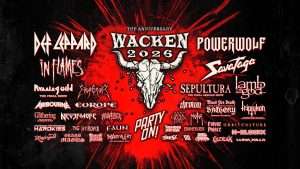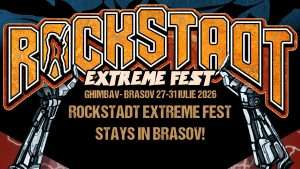35 years of “Nosferatu”, Helstar’s masterful tribute to Bram Stoker
Helstar’s ultimate classic “Nosferatu” is still one of the strongest albums ever released about count Dracula.
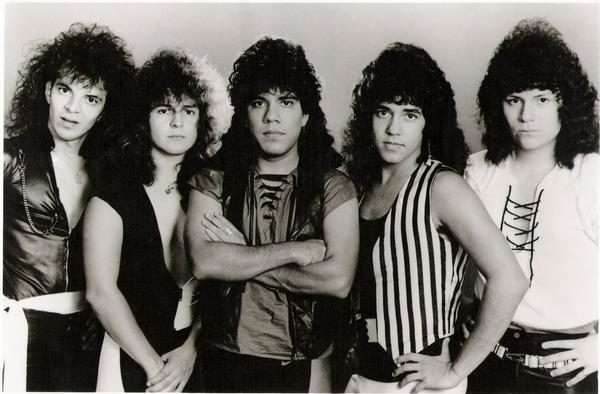
Have you ever experienced that feeling of discovering an album that changes your life? The same thing happened to us when we first heard Helstar‘s majestic Nosferatu, a must-have album for any fan of old school American metal. It impacted us in such an intimate way that we became hopelessly lost in the dark and solemn atmosphere it conveyed. It is without a doubt one of my favorite albums and with each listen we can feel that different nuances are appreciated. Helstar began with a debut that draws heavily from the heavy music of NWOBHM, Burning Star, followed by the aggressive hybrid between American power and thrash of Remnants Of War. This second album would mark the path that the group would follow in their two masterpieces: A Distant Thunder and Nosferatu. In the first one can see a technical evolution with respect to its predecessor, while our today’s protagonist represents the compositional zenith of the group: a wonderful mix between the power/thrash sound that characterizes them and clear neoclassical influences.
As its name indicates, it is a partially conceptual album based on the famous silent film “Nosferatu, A Symphony Of Horror by Friedrich Wilhelm Murnau (1922), starring the magnificent performance of Max Schreck as the gloomy Count Orlok. Although perhaps the best adaptation of Bram Stoker’s timeless Dracula (1897), his widow filed a copyright infringement lawsuit and ordered all copies of the work destroyed. Its director had changed all the characters’ names since he had not been able to buy the rights.
In September of this year it will be thirty-five years since its publication in 1989. Naturally, we wanted to do a detailed analysis of the themes that make up this magnificent work. The influence it had on later works of both technical thrash and neoclassical metal is undeniable. The soft guitar intro of Rhapsody In Black serves as the perfect introduction for the thunderous Baptized In Blood that begins this gem of the metal underground. The theatricality and range of the voice of the great James Rivera impacts the listener from the first notes. Taking into account the theme covered and the musical style offered, it is inevitable to think of the brilliant soundtracks of classic video games in the Castlevania saga, such as Castlevania IV or Symphony Of The Night.

An excerpt from the famous 1979 film Dracula, directed by John Badham who trusted Frank Langella for the role of the dark Count, prepares us for the next blow that is To Sleep, Per Chance To Scream. The title of the song refers to a passage from the famous Hamlet by William Shakespeare, when the Danish prince has just learned from his father’s ghost that his uncle Claudius has just killed his brother the king and plans to marry his wife. The young man, feeling on the verge of madness, debates between seeking revenge or committing suicide, unable to know how to react to such adversity. The original soliloquy is To Sleep, Per Chance To Dream, in which he wonders if his own death might be the best solution.
In these first two songs the vampire himself recounts in the first person the so-called baptism of blood. In Bram Stoker‘s novel, it is explained that it is the process through which the vampire bites its victim and makes it drink its own blood so that it does not die, with the aim of binding it forever as its slave and continuing to feed on it. its vital essence throughout eternity. Its origin is religious, being the term that describes the martyrdom that a person who has practiced the Christian faith must suffer, in the event that they have not been baptized and want to purify themselves and redeem themselves from their sins.
Without taking the foot off the accelerator at any time, another of the album’s high points comes with Harker’s Tale (Mass Of Death), in which Jonathan Harker himself from the original novel tells with dismay the horrors that he and his wife Mina (later transformed into a living dead woman) have been experimented on in the Carpathian castle where Dracula resides. The first guitar solo by Larry Barragan and the second by André Corbin are among the best of an album full of musical exhibitions by its five members.
“I have in my time had many brides, Mr. Harker. But I shall set Lucy above them all”, this another successful fragment of the aforementioned Dracula from 1979, puts us in a position to surrender to the majestic instrumental Perseverance And Desperation, a musical ecstasy by Corbin. Perhaps due to the eventual bad relationship with his former bandmate, Barragán has mentioned on several occasions that he finds this instrumental too pretentious.
The calm The Curse Has Passed Away introduces us to another character from Bram Stocker‘s world: the vampire Lora, who appears in the short story Dracula’s Guest, considered the original prologue of Dracula that was finally eliminated from the novel. Stocker himself acknowledged that he was inspired by the character of Carmilla, the lesbian vampire by Joseph Sheridan Le Fanu. It has been speculated that Lora’s name refers to the Austrian princess Eleonore Von Schwarzenberg, accused of practicing vampirism, although it could also be based on another Hungarian aristocrat, the bloody countess Erzsébet Báthory. The narrator laments having lost his beloved Lora, although he manages to take revenge by killing the vampire who turned her.
There is a strong criticism of the contradictions of religion and the values it defends in Benediction, corrupted by those who hold true power. This reflection continues with Harsh Reality, in which other major problems in society are attacked such as hypocrisy, greed, military service, hunger, ignorance or prejudice. To emphasize the message, the song ends with the phrase “Why is the world so fucked up?”
Swirling Madness is perhaps the most thrasher composition on the LP, a true descent into madness with another demonstration of skill from the two guitarists. It is also worth mentioning the great work of drummer Frank Ferreira, who stands out in this song or in others such as Harker’s Tale (Mass of Death) or Harsh Reality. In a clear contrast, the instrumental Von Am Lebem Desto Strum delights us with a hypnotic piano solo by bassist Jerry Abarca, accompanied by Corbin on keyboards. This beautiful piece acts as a preamble to the theme that closes this wonderful journey into darkness, the enigmatic Aieliaria And Everonn. It is difficult to discern the meaning of its lyrics, although it seems to tell the story of a young man, Everonn, who is deceived by the siren songs of Bride, a witch who keeps him captive in a trance. Aieliaria, Princess of the Winds, tries to alert the young man to the danger in vain.
The album conveys the feeling of being a continuous journey: from the attack of the vampire narrated in the first four songs, followed by the end of the curse when the young man manages to stake the undead to end its existence once and for all. in The Curse Has Passed Away. Then the vampire theme is relegated to the background, giving rise to a more general vision of the world, in which a criticism of society is made in Harsh Reality and Benediction, passing through the narrator’s madness in Swirling Madness. Perhaps the last song, Aielaria And Everonn, could be an extension of the madness of whoever tells the story.
In general terms, although the album sounds much more frenetic than the previous A Distant Thunder, at the same time it denotes greater general cohesion between all the instruments. On any other album the use of so many instrumental songs would have resulted in out-of-place nonsense. Here the interludes work in perfect harmony, highlighting the atmosphere that is intended to be created. The continuous changes of rhythm and structure highlight the detail that was dedicated to each piece.
On the other hand, it could be said that side B of the album is perhaps somewhat worse on a musical level compared to side A, although we are facing one of those albums that have marked the history of a subgenre, American power, which encompasses bands as different in sound as Jag Panzer or Heir Apparent.
Sadly, the continuous conflicts that James Rivera and Larry Barragán had with André Corbin, due to discrepancies in compositional terms among other factors, ended with the bitter departure of the guitarist who never played again with his former bandmates. In fact, today in several interviews he has admitted that he does not have any relationship with his former colleagues. Due to problems with the record label Metal Blade Records, the band almost dissolved after the release of Nosferatu, especially following the failure of their next work, Multiples Of Black in 1995.
Rivera was in several projects, highlighting his two albums with Destiny’s End (Breathe Deep The Dark) and Vicious Rumors (Warball), until the band returned after a hiatus of more than ten years in 2006 with the formation that recorded Remnants Of War, naturally without Corbin. Helstar themselves wanted to pay tribute to their Nosferatu with the recent Vampiro from 2016, a huge sequel that shows that the group is stronger than ever.
You can listen to Nosferatu through Spotify:


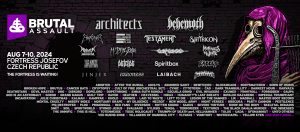
![amorphis-presentan-nuevo-sencillo-light-and-shadow-de-nuevo-album-borderland-1849[1]](https://alliedforces.es/wp-content/uploads/2025/08/amorphis-presentan-nuevo-sencillo-light-and-shadow-de-nuevo-album-borderland-18491-300x159.jpg)
